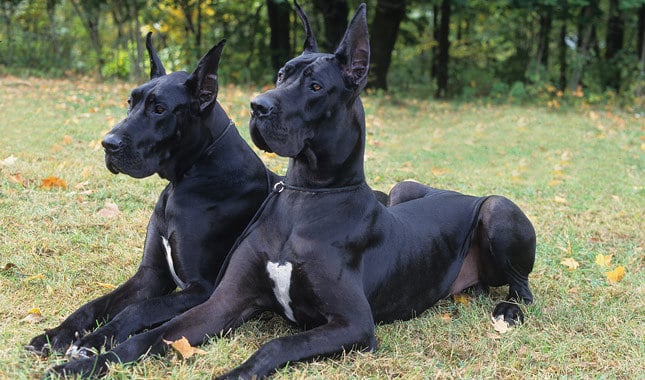Wolfdogs: 15 Must-Know Facts Before Owning One

Wolfdogs bring excitement and many challenges for their owners. These unique hybrids carry wild instincts and domestic traits unlike any other pet. So, you must understand their needs, behaviors, and quirks before bringing one home. Here’s what every potential owner should know about wolfdogs.
What Exactly Is A Wolfdog?

A wolfdog is a canine with both domestic dog and wolf ancestry. This mix can result from breeding a pure wolf with a companion dog or two wolfdogs together. Depending on the percentage of wolf genes, their mannerisms, appearance, and necessities can vary significantly, creating a unique but unpredictable companion.
The Spectrum Of Wolf Content

Wolfdogs fall into three categories based on their wolf genes: high-content, mid-content, and low-content. High-content wolfdogs closely resemble wild wolves, while mid-content ones display dog and wolf traits. Low-content wolfdogs behave more like household dogs, though some wolf instincts may still influence their personality and needs.
Not Just Any Dog Breed

While any dog breed can be part of a wolfdog, certain breeds are more commonly involved. German Shepherds, Siberian Huskies, and Alaskan Malamutes are frequently used due to their physical and behavioral similarities to wolves. The mix influences how much a wolfdog retains wild instincts or adopts domestic dog tendencies.
Ownership Rules And Regulations

Owning a wolfdog isn’t permitted everywhere. Some states and cities ban them entirely, while others require permits, vaccinations, or special containment measures. Even if allowed, restrictions may vary based on the wolf content level. Potential owners must check local regulations before considering bringing a wolfdog into their home.
Unique Dietary Needs

A standard commercial dog diet isn’t ideal for wolfdogs. Their bodies thrive on raw meats, bones, and a high-protein meal plan that mimics what wolves eat in the wild. Nutritional deficiencies can arise if their nutritional intake isn’t carefully planned, which makes proper feeding a critical responsibility for any wolfdog owner.
Space And Exercise Requirements

These canines aren’t suited for tiny homes or city life. Their wild instincts drive them to roam, requiring large, secure enclosures with high fences to prevent escape. Without enough space and mental stimulation, they become restless, destructive, or aggressive. A well-exercised wolfdog is far easier to manage.
Socialization Challenges

Early socialization is critical for wolfdogs, but even with extensive exposure, they may still be wary of strangers. They can become fearful, skittish, or aggressive without proper training from puppyhood. Wolfdogs aren’t naturally eager to please like companion dogs, which can make traditional obedience training more difficult.
Vaccination Complications

Standard rabies vaccines are tested on domestic dogs, not wolfdogs. Certain states don’t legally recognize vaccinated wolfdogs as protected against rabies, which creates complications if they bite someone. In such cases, authorities may require quarantine or even euthanasia. It makes responsible ownership and containment especially important for preventing incidents.
Not Recommended For First-Time Owners

Typical dog behavior doesn’t apply to these hybrids. Some individuals are affectionate and social, while others are aloof, independent, or highly reactive. Their temperament depends on their wolf content and upbringing, which makes them unpredictable in unfamiliar situations. Handling them requires experience, patience, and a deep understanding of canine tendencies.
Lifespan Considerations

Wolfdogs generally live between 12 and 14 years, similar to large dog breeds and wolves in captivity. Their lifespan depends on genetics, diet, and healthcare. While they can be long-term companions, their unique needs demand dedication throughout their lifetime, making ownership a serious commitment.
More Howl Than Bark

Unlike domestic dogs, wolfdogs rarely bark. Instead, they communicate through howling, whimpering, and growling, similar to wolves. Howling is an instinct; they may express emotions, respond to other sounds, or signal their presence. It can be a problem in residential areas where noise complaints arise.
High Intelligence And Independence

Wolfdogs’ are independent and intelligent. So, they rely more on instinct than commands. Unlike pet dogs that bond closely with humans, these hybrids call for special training and extra measures to secure the boundaries of the house.
Physical Characteristics

Wolfdogs often resemble wolves with thick fur, long legs, narrow chests, and piercing eyes. High-content wolfdogs tend to have larger paws, elongated snouts, and a more muscular build. The extent of their wolf-like features depends on their genetic mix, but even low-content wolfdogs often retain some distinct wolf traits.
Not Ideal Guard Dogs

Despite their imposing appearance, wolfdogs are not natural guard dogs. Instead of protecting territory, they often avoid confrontation or react unpredictably to dangers. Their wariness of strangers may cause them to flee rather than defend, a trait that makes them unreliable for security purposes despite their intimidating presence.
Commitment And Responsibility

Even if you have experience as a dog owner, know that wolfdogs are not for everyone. If you fail to provide the right training, diet, or environment, they can become destructive, unmanageable, or even dangerous. Before considering one, ask yourself: Are you prepared for a lifelong commitment that demands time, effort, and responsibility?





